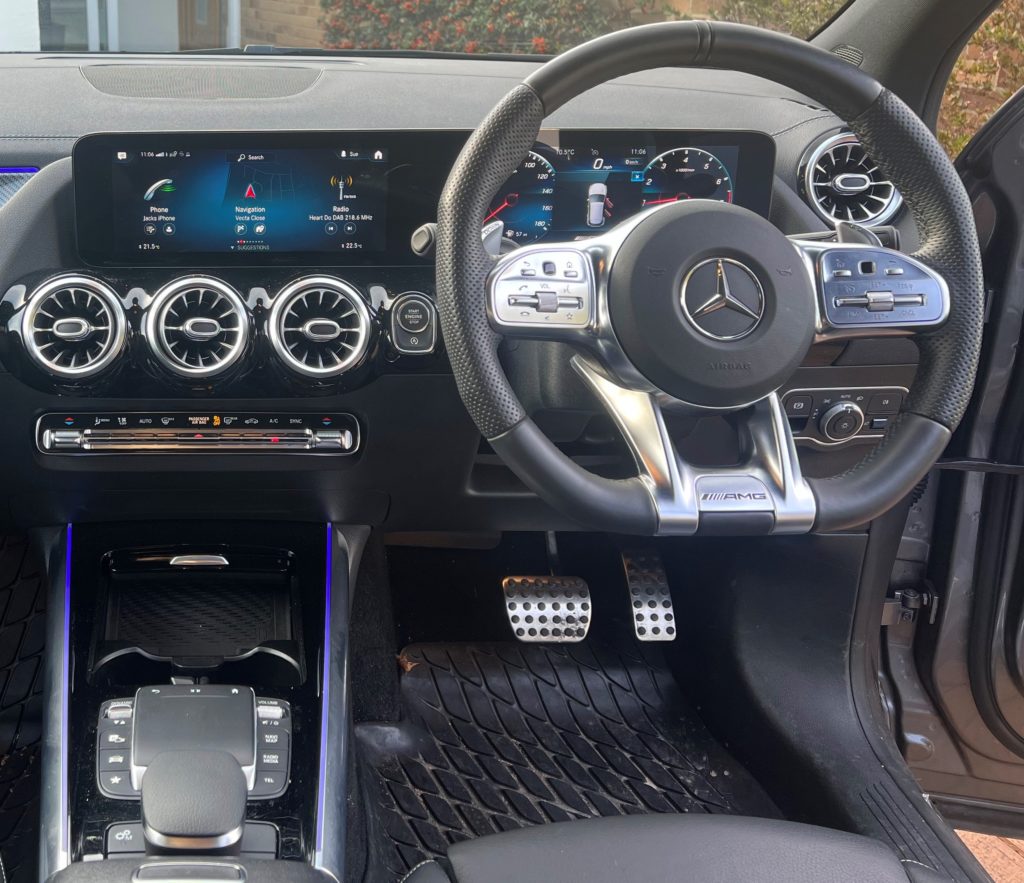Thinking about buying a used car and need to check its history? You’ll probably have seen an HPI Check recommended in every guide you’ve looked at. Possibly you’ve seen tips on getting an alternative to an Official HPI Check for less, or even for free.
But before you decide whether to get a vehicle history report from HPI or anyone else, it’s important to understand what it should cover. Especially when you’re choosing how much to pay.
Before we start, if you are yet to sell your vehicle and want to know your car’s value, try out our easy to use Car Value Tracker.
In this guide, we’ll explain what an HPI check is, what data is included, why it’s important, and the various options and costs.
If you’re buying a car and need one reason to spend a few minutes with this HPI Check guide, just consider that published HPI data suggests that an astonishing 1 out of every 3 cars checked has something to hide, so don’t get caught out unnecessarily by scrimping on checking costs.

The HPI Check explained:
- What is an HPI Check?
- What does an HPI Check tell you about a car?
- What is in an HPI Check report?
- How can I get a free HPI Check?
- Get an HPI check from VIN number
- How much is a HPI Check?
- Does the DVLA do HPI Checks?
- Can HPI Check for trade?
- Who offers the best HPI Check?

What is a HPI Check?
Some products and services become so well known that they end up being part of everyday language. Think about all the times you ‘Google’ something, or clean your house by ‘hoovering’. The HPI Check is the equivalent in the used car market.
HPI Ltd who runs the official HPI Check is actually a British company (owned by an American firm since 2008), which offers vehicle history checks on any vehicle registered in the UK with the DVLA.
The name is actually abbreviated from Hire Purchase Information. The firm was originally created to provide reports for used car buyers.
And HPI has a long history. It was founded way back in 1938 by six leading finance companies in response to a rise in car fraud. People were getting hold of cars on hire-purchase finance agreements, and then going to another company to borrow money against it.
To stop the finance fraud it was agreed that each company would share their data with HPI Ltd and that they would all have access to the shared database.
But the original HPI Check has expanded a lot over the years. The company now works alongside the police, DVLA, and insurers. This makes for a wealth of data available on each vehicle.
That helps to uncover the 1 in 3 cars that HPI have found with issues for the next potential buyer, such as an active finance agreement or loan in place on it. And beyond basic financial signals, they also reveal more than 74 stolen cars every day.
Who is an HPI Check useful for?
Knowing the history of a vehicle is incredibly helpful if you’re a potential car buyer. That’s especially true if you’re considering purchasing from a private seller. The rules are more relaxed than for used car dealers, and you might not get the full story.
When you’re looking to buy a second-hand car, you can check for obvious mechanical faults. You might also find the Vehicle Identification Number (VIN) or go through paperwork including service histories and MOT records.

But how will you know if the car has outstanding finance or been in an accident? What if it’s previously been stolen, is a Cat D write off, or even been recorded as officially exported from the UK? You could be left out of pocket for a car that is either illegal to use, or might actually still belong to a lender or finance company.
HPI has identified that 1 out of every four cars checked will have had the number plates changed and more than 1,771 insurance write-offs are uncovered every day.
What other benefits come with an HPI Check?
Getting a full report on the history of a vehicle is useful in other ways, too. You can check the MOT status and history of any vehicle online. You can also make sure of the vehicle’s current road tax status.
The HPI Check also includes vehicle identification data, previous owners, registration plate changes, previous colours, and mileage verification. All of which can potentially flag up something that’s not quite right about the car for sale.
Roughly 1 in 16 cars checked by HPI have a mileage discrepancy. This could mean that they have been ‘clocked’, and are showing a lower amount of miles than the car has really covered.
What does an HPI Check tell you about a car?
A HPI Check will run through all historic records and tell you whether a car is being sold legally and legally allowed to be driven on UK roads. That will help you to avoid being caught out or scammed when you’re buying your next car.

You’ll be given a full report with a helpful summary covering everything that has been checked during the process. You also get tips on what else might be needed, such as contacting the manufacturer if there’s a recall outstanding. Or other discrepancies that may just need additional research before you spend any money.
What is included with an HPI Check?
A HPI Check is a comprehensive vehicle history report which goes through more than 80 data points about a car. They include:
Stolen Car Check: When a car is reported as stolen, the registration details are added to the Police National Computer. The HPI Check will include this information.
Insurance Write-Off: Category A and B insurance write-offs need to be taken off the road and scrapped, so you definitely don’t want to buy one which has been put back on the road. If you’re buying a Category S or N car (formerly Category C and Category D), you need to know about it to ensure it’s been repaired properly.
Outstanding Finance: If money is still owed on the car, then the lender or finance company will legally own it until the debt has been paid. So the registered keeper on the logbook might not actually be the owner. If you buy that car without realising, and fail to make payments, you might lose your vehicle, and the money you paid for it.
Logbook Check: The logbook (V5C document) records the registered keeper of a vehicle. It can be used to take out a ‘logbook loan’, or to hide a stolen or cloned car.
Scrapped Car Check: If a car has been recorded as scrapped on the DVLA database, as an insurance write-off or for any other reason, then it shouldn’t be driven or sold.
Imported/Exported Cars: You can import a car into the UK, but there are specific processes for registering parallel or grey imports. They may cost more to insure, or not be approved to ever use on UK roads. If a car has already been registered as officially exported from the country, it can’t be legally used or insured in the UK.
Vehicle Identification Data: You can check the correct Vehicle Identity Number (VIN or chassis number), and the engine number all match with the official records. This helps to reveal stolen or cloned cars, or if other serious problems have occurred with the vehicle.
Vehicle Specifications: Including details of the correct colour (in case it has been changed and not registered as such), equipment, fuel consumption and CO2 emissions.
Car Valuation: Not just how much you should potentially pay for a private or forecourt sale at a dealership (or receive as a trade-in), but also a fully comprehensive car valuation including a calculation of future depreciation.

You’ll also get additional data that comes from the DVLA including the recorded mileage for verification, and the MOT status and history.

How can I get a free HPI Check?
The simple answer is that you can’t get a free HPI Check. Unless you get someone else to pay for it.
Alternative vehicle history check services are available, and we’ll cover some of the cheaper options later in this guide. But you’ll only get the full data if it’s been supplied by a dealer as part of their sales package, for example.
There’s a simple reason for some confusion over free car checks. The DVLA allows some of their data to be accessed online without any cost, including the MOT status of a vehicle, and current road tax.
You can get a basic free car check with CarDataChecks.co.uk or CarVeto, they both offer a DVLA MOT history and recall check for free with no sign-up details required. If you require a more in-depth check they also kindly link you to a number of options from HPI, Experian, and mycarcheck.
You can find free services for yourself in minutes with a quick Google search for ‘car details check’. But there’s a cost for companies to collate and maintain information from the police, insurers, finance companies, and industry organisations.

So, a free car check could save you a few minutes by collecting all the readily-available information in one place. But if you only rely on it, you could end up seriously out of pocket as it won’t have all the data for outstanding finance and loans, or stolen and written-off cars.
Get a HPI check from VIN number
You can get a HPI check from a VIN number with most HPI type checking services. For example; HPI themselves state the VIN checks are carried out with every HPI check done via their service.
On their website they state the below:

If you need a VIN check but you don’t have the car’s reg then you can use a website like uk.vin-info.com. You can locate your VIN number on the driver’s side where the windscreen meets the dashboard.

How can I get a cheap HPI Check?
Technically, a HPI Check is only available from the company itself. But there are alternative firms offering comprehensive vehicle reports. They also have access to varying amounts of the same databases used to check insurance records, vehicle details, and more.
Getting the best deal also varies depending whether you want to check a single vehicle, or buy multiple checks at the same time and the level of data you want to access.

The following prices for HPI Checks were accurate as of January 2021, they may have changed slightly since then…

What options do HPI offer for their check?
As mentioned earlier, HPI offer three levels of check. The most Basic Check costs £9.99 and comes with debt/finance, stolen, insurance write-off and imported/exported information.
The standard HPI Check will cost £19.99 and includes the full range of data. Or you can buy a Multicheck, which includes 3 reports, for £29.97. You’ll need to redeem the checks within 2 years of the original date you bought them.
When you purchase, you can also add a Safety Recall Check for an additional £2.99.
Are there cheaper options for an HPI equivalent?
In this section, we’ll compare a full single vehicle history check from some of the different providers to see how much you could possibly save.
The RAC provide their own check for £14.99, which also includes common breakdown reasons and RAC Shop vouchers worth up to £55. Like HPI, it also comes with a guarantee for up to £30,000 of cover.
Cazana also costs £14.99, with the same £30,000 guarantee, and a report based on their data alongside access to the police and insurance databases.
Experian Autocheck also includes the same information and level of guarantee for £14.95.
You can start a report from Caranalytics for free, but to upgrade for the full level of data will cost you £8.95 and £6.99 for all further checks.
Rapid Car Check offers a free initial check with the option to upgrade to a standard check for £2.95 or a comprehensive deluxe check for £8.99.
MyCarCheck has free and £1.99 options. But for the full report, you’ll need to pay £9.99.
Full Car Checks has a free and £3.99 options. But for a full report, it will cost £8.99.
Total Car Check prices start at £1.99. But for comparable data and guarantees, their Gold history report will cost £8.99.
A comprehensive and the cheapest vehicle history check in the UK is Car Guide. They offer a large amount of data on your car and their unique Ai platform also predicts which components are likely to fail during your next MOT.
But there’s also another option. Some companies sell HPI car check data under their own brand names, including the AA, Parkers, Ebay, Gumtree and more, it’s actually often cheaper than going directly to HPI.
So despite all being powered by HPI data, the AA car check will cost £14.99, the eBay and Gumtree check £9.99, and the Parkers check is just £8.99. The only real difference with the services ‘powered by’ HPI is that the data accuracy guarantee is limited to £10,000.
So the Parkers check will actually cost the same as Total Car Check, and £11 less than going directly to HPI, despite using the same data.
Expect to pay around £5.99 for the cheapest reports which are actually useful, and from £8.99 to get additional information and guaranteed protection if the data turns out to be inaccurate.
Does the DVLA do HPI Checks?
You can get a range of vehicle information directly from the DVLA. All you need is the car’s registration number or V5C number to start using it. But the DVLA doesn’t provide a HPI Check or full vehicle history report.

The DVLA information is part of any car check, including HPI. But it doesn’t include referencing insurance companies, outstanding finance, cross-referencing the police database of stolen vehicles, or any motor trade organisations. It’s possible to check if a car is currently insured for free, but that’s done separately, via the Motor Insurance Database.
Information the DVLA will provide includes when current tax expires, current MOT status and history, known recalls, and the specifications recorded on the vehicle logbook (colour, engine size, year of manufacture and CO2 emissions).
Is there a HPI check for trade?
If you run a business in the motor trade, you can also sign up for HPI Checks. The benefits of trade HPI Checks are both for ensuring you’re buying the right used cars, and also to demonstrate the provenance of your vehicles to potential customers.
The features of a trade HPI Check are generally the same as for a private enquiry, except that you can also add additional features including CAP valuations, National Mileage Register checks, and the HPI vehicle monitor, which will tell you if anyone else has recently checked the same vehicle through HPI.
There’s also a mobile app which includes a full history of all checks made, and the last 100 checks stay on your phone so you can revisit and recheck any car.
Trade accounts require you to contact Cap HPI directly to create an account with them.
Who offers the best HPI check?
If you’re looking for the best HPI Check, then by definition, HPI will offer the definitive solution. That’s partly why the term has become used for a range of vehicle reports. It might also explain how they’ve been successfully in business since 1938.

Picking the best HPI Check for your individual situation depends on the type of car you’re looking at and how much information or data cover you need. If you’re considering buying a high-value car, then £30,000 cover for data accuracy makes HPI well worth it.
But if you’re tempted by a cheap runabout, then getting the same HPI data for less makes sense, even with a much smaller guarantee.
Ultimately, the best advice when it comes to HPI Checks and vehicle history reports is that they’re always worth having.
It’s better to pay £19.99 and avoid potentially losing thousands of pounds and the car if it’s stolen or subject to finance. As well as the possible risk to yourself if a car has been written-off or scrapped and then returned to the road illegally.

Ready to sell your car?
Want to read more about owning, valuing and selling your car? Check out more of our guides here, covering everything from depreciation and maintaining your car’s value. Understand your car’s worth in the wider market.
- How much is your car worth? Complete Guide
- How to use a car buying site
- How to sell your car
- V5C – the ultimate guide to the V5 logbook
- Cat D cars: the complete guide to category D
- Scrap your car
- MOT: the ultimate guide to MOT tests and certificates
- The DVLA and selling your car
- Is my car insured? How to check your car has insurance
- What insurance group is my car? How to check your car’s insurance group
- Car tax: the ultimate guide

